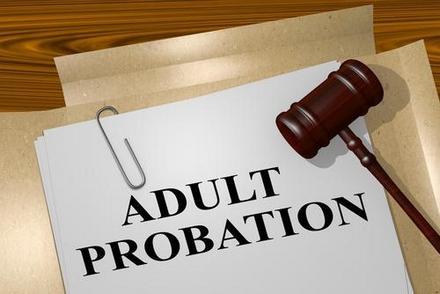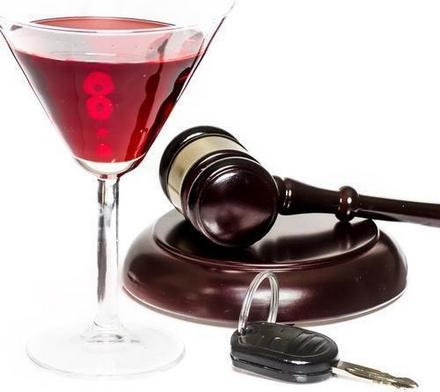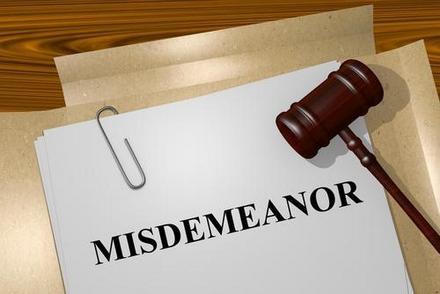TELEPHONES ANSWERED 24 HOURS A DAY
Recent Blog Posts
False Domestic Abuse Allegations: Common Risks and How to Protect Yourself from Potential Criminal Charges
 In the United States, a woman is beaten every fifteen seconds, and at least ninety-five percent of all domestic violence cases involve a man beating a woman. With statistics like these, it is no wonder that the law takes domestic abuse seriously. Criminal domestic violence allegations are capable of affecting a person’s livelihood, reputation, and emotional wellbeing, and sadly, there are times when a number of these allegations are a result of misleading - or entirely false - reports by the other domestic partner.
In the United States, a woman is beaten every fifteen seconds, and at least ninety-five percent of all domestic violence cases involve a man beating a woman. With statistics like these, it is no wonder that the law takes domestic abuse seriously. Criminal domestic violence allegations are capable of affecting a person’s livelihood, reputation, and emotional wellbeing, and sadly, there are times when a number of these allegations are a result of misleading - or entirely false - reports by the other domestic partner.
Men More at Risk for Facing Domestic Violence Charges
While men also fall victim to abuse, statistics illuminate the overwhelming reality that women are typically the ones to be abused in relationships. Due to this trend and the statistics that consistently back it up, a significant amount of men who are truly innocent of such offenses often find themselves up against serious criminal charges when allegations are brought against them.
Understanding Probation in Illinois
 Are you facing criminal charges in Illinois? Depending on the severity of the crime you are accused of committing, you may be eligible for probation instead of facing jail time. A qualified Illinois criminal defense attorney can review the charges you are facing and advise you if you may be allowed probation over a harsher sentence. What does probation entail, and who is eligible? Below, we explore important facts about probation in Illinois.
What Is Probation?
Probation offers criminal offenders significantly more freedom while serving their sentences. The offender is able to serve their sentence while living in their community but under the close watch of their probation officer. Those on probation must follow certain terms set by the court and the individual's actions are observed closely. Probation can be offered immediately after being found guilty, or it can be a portion of a larger sentence including jail time.
Sentencing lengths for probation depend on the severity of the crime committed. Most probation sentences range from one to three years, though sentences can be shorter or longer depending on the case.
As said earlier, not every offense is eligible for probation. If an offender has committed a minor crime and has never been convicted before, they may be sentenced to probation instead of jail time. Probation is still considered a conviction and will be listed on your record, but it is a nicer alternative to prison.
Probation Terms
When sentenced to probation, each offender is given specific terms that they must meet at all times. While specific terms are set on a case by case basis, some common terms of probation include:
Are you facing criminal charges in Illinois? Depending on the severity of the crime you are accused of committing, you may be eligible for probation instead of facing jail time. A qualified Illinois criminal defense attorney can review the charges you are facing and advise you if you may be allowed probation over a harsher sentence. What does probation entail, and who is eligible? Below, we explore important facts about probation in Illinois.
What Is Probation?
Probation offers criminal offenders significantly more freedom while serving their sentences. The offender is able to serve their sentence while living in their community but under the close watch of their probation officer. Those on probation must follow certain terms set by the court and the individual's actions are observed closely. Probation can be offered immediately after being found guilty, or it can be a portion of a larger sentence including jail time.
Sentencing lengths for probation depend on the severity of the crime committed. Most probation sentences range from one to three years, though sentences can be shorter or longer depending on the case.
As said earlier, not every offense is eligible for probation. If an offender has committed a minor crime and has never been convicted before, they may be sentenced to probation instead of jail time. Probation is still considered a conviction and will be listed on your record, but it is a nicer alternative to prison.
Probation Terms
When sentenced to probation, each offender is given specific terms that they must meet at all times. While specific terms are set on a case by case basis, some common terms of probation include:
- Reporting on a regular basis to a probation officer;
Illinois Felony Punishment Breakdown
 Are you facing felony charges? A felony crime is any crime that is punishable by either the death penalty or at least one year in an Illinois state prison. Misdemeanor charges, on the other hand, include a prison sentence of a year or less, depending on the severity. If you are facing felony charges, it is important that you consult an experienced criminal defense attorney. With prison time and hefty fines on the line, a guilty verdict can be life changing.
In Illinois, felonies are categorized based on the severity of the crime committed. In general, the less serious the crime is, the less severe the punishment is likely to be. Felonies are broken into five categories - Class 1 through 4 felonies, followed by Class X, which consists of the most severe crimes one can commit aside from first-degree murder.
If you are facing felony charges, an experienced criminal defense attorney can help determine which class of felony you are being charged with and can help you build as best a defense as possible. Below, we break down the punishments associated with each class of felony in Illinois.
Class 4 Felony
The least serious felony charges one can face are Class 4 Felony charges. Examples include stalking and aggravated assault. Being the least serious of all the felony classes in Illinois, Class 4 felony punishments are a fine of up to $25,000 and between one and three years in jail.
Class 3 Felony
Class 3 Felonies are a step up from Class 4 and thus carry harsher sentences. Aggravated battery, for example, is a Class 4 felony, and anyone found guilty of committing a Class 4 felony will face between two to five years in a state prison as well as fines of up to $25,000.
Class 2 Felony
Class 2 Felonies, arson, for example, are very serious. Sentences range from three to seven years in prison as well as fines of up to $25,000.
Class 1 Felony
Class 1 Felonies include heroin and cocaine possession, as well as other very serious crimes such as criminal sexual assault. The punishment, if found guilty, ranges from four to 15 years in prison and fines of up to $25,000.
Class X Felony
Class X Felonies are the most serious of all felony charges in Illinois. If found guilty, those who have committed Class X felonies face between six to 30 years in state prison as well as fines up to $25,000.
Extended Terms in Illinois
In some cases, a judge may determine that extended sentencing is necessary, and may sentence those found guilty of committing a felony to more than the typical prison time associated with the class of felony. Aggravating factors must be present for a judge to add extended terms. For example, a past criminal history, or being involved in a hate crime, would both warrant potential extended terms. Even a Class 4 felony, which is usually punishable by one to three years in prison, can be extended to up to six years spent incarcerated if aggravating factors are present. At the top of the list, a Class X felony with extended terms can be punishable by up to 60 years of incarceration.
Facing Charges?
Are you facing felony charges? A felony crime is any crime that is punishable by either the death penalty or at least one year in an Illinois state prison. Misdemeanor charges, on the other hand, include a prison sentence of a year or less, depending on the severity. If you are facing felony charges, it is important that you consult an experienced criminal defense attorney. With prison time and hefty fines on the line, a guilty verdict can be life changing.
In Illinois, felonies are categorized based on the severity of the crime committed. In general, the less serious the crime is, the less severe the punishment is likely to be. Felonies are broken into five categories - Class 1 through 4 felonies, followed by Class X, which consists of the most severe crimes one can commit aside from first-degree murder.
If you are facing felony charges, an experienced criminal defense attorney can help determine which class of felony you are being charged with and can help you build as best a defense as possible. Below, we break down the punishments associated with each class of felony in Illinois.
Class 4 Felony
The least serious felony charges one can face are Class 4 Felony charges. Examples include stalking and aggravated assault. Being the least serious of all the felony classes in Illinois, Class 4 felony punishments are a fine of up to $25,000 and between one and three years in jail.
Class 3 Felony
Class 3 Felonies are a step up from Class 4 and thus carry harsher sentences. Aggravated battery, for example, is a Class 4 felony, and anyone found guilty of committing a Class 4 felony will face between two to five years in a state prison as well as fines of up to $25,000.
Class 2 Felony
Class 2 Felonies, arson, for example, are very serious. Sentences range from three to seven years in prison as well as fines of up to $25,000.
Class 1 Felony
Class 1 Felonies include heroin and cocaine possession, as well as other very serious crimes such as criminal sexual assault. The punishment, if found guilty, ranges from four to 15 years in prison and fines of up to $25,000.
Class X Felony
Class X Felonies are the most serious of all felony charges in Illinois. If found guilty, those who have committed Class X felonies face between six to 30 years in state prison as well as fines up to $25,000.
Extended Terms in Illinois
In some cases, a judge may determine that extended sentencing is necessary, and may sentence those found guilty of committing a felony to more than the typical prison time associated with the class of felony. Aggravating factors must be present for a judge to add extended terms. For example, a past criminal history, or being involved in a hate crime, would both warrant potential extended terms. Even a Class 4 felony, which is usually punishable by one to three years in prison, can be extended to up to six years spent incarcerated if aggravating factors are present. At the top of the list, a Class X felony with extended terms can be punishable by up to 60 years of incarceration.
Facing Charges?
Are you facing felony charges? A felony of any class can be life changing, so it is important that you consult with an experienced Illinois criminal defense attorney who can help build a strong defense. At the Law Offices of Hal M. Garfinkel LLC, Chicago Criminal Defense Attorney, our team has years of success defending clients from a variety of charges. Attorney Garfinkel himself is a former prosecutor who understands the Illinois legal system. Call 312-629-0669 today to set up a free consultation with us to review your case.
Finding the Right Criminal Defense Attorney
 You have been accused of a crime. Now, what? First off, remember - you have the right to remain silent. You do not need to speak to any police officer or any other authority figure about anything relating to your case. Law enforcement officials are skilled at their jobs - they have the ability to lie and manipulate facts to coax people into admitting guilt. Do not fall for this. Instead, it is vital that you seek the help of a skilled Illinois criminal defense attorney immediately.
You have been accused of a crime. Now, what? First off, remember - you have the right to remain silent. You do not need to speak to any police officer or any other authority figure about anything relating to your case. Law enforcement officials are skilled at their jobs - they have the ability to lie and manipulate facts to coax people into admitting guilt. Do not fall for this. Instead, it is vital that you seek the help of a skilled Illinois criminal defense attorney immediately.
- What similar cases have you handled in the past;
What Does Aggravated DUI Mean?
 In Illinois, DUIs can be ruled misdemeanors or felonies. In all cases, a person must be found guilty of operating a vehicle under the influence of drugs or alcohol beyond the legal limit. Most first-time DUIs are misdemeanors, but in some circumstances, even first time DUI charges can be enhanced to felony charges. DUI charges can be increased from misdemeanor charges to felony charges if any number of aggravating factors are present.
If prosecutors find that aggravating factors present and increase the DUI to a felony, it is now an aggravated DUI. While it is important to consult an experienced Illinois DUI attorney no matter your DUI charges, those facing aggravated DUI charges should seek the help of an attorney skilled in DUI defense immediately, as the sentences for felony charges are much harsher than misdemeanors.
Aggravating Factors
When prosecutors and judges review a DUI case, they look for a number of mitigating and aggravating factors. Mitigating factors, such as being a first time DUI offender with no past record, are positive reasons to be more lenient. Aggravating factors, on the other hand, can lead to tougher sentences. A DUI can be enhanced to a felony if:
In Illinois, DUIs can be ruled misdemeanors or felonies. In all cases, a person must be found guilty of operating a vehicle under the influence of drugs or alcohol beyond the legal limit. Most first-time DUIs are misdemeanors, but in some circumstances, even first time DUI charges can be enhanced to felony charges. DUI charges can be increased from misdemeanor charges to felony charges if any number of aggravating factors are present.
If prosecutors find that aggravating factors present and increase the DUI to a felony, it is now an aggravated DUI. While it is important to consult an experienced Illinois DUI attorney no matter your DUI charges, those facing aggravated DUI charges should seek the help of an attorney skilled in DUI defense immediately, as the sentences for felony charges are much harsher than misdemeanors.
Aggravating Factors
When prosecutors and judges review a DUI case, they look for a number of mitigating and aggravating factors. Mitigating factors, such as being a first time DUI offender with no past record, are positive reasons to be more lenient. Aggravating factors, on the other hand, can lead to tougher sentences. A DUI can be enhanced to a felony if:
- The driver has two past DUIs or more;
Class X Felonies in Illinois
 In Illinois, crimes are categorized based on the type of crime committed and the severity of said crime. Less serious crimes, low-level marijuana possession or reckless driving, for example, are considered misdemeanors, and carry with them a possible punishment of fines and a maximum of one year in jail. Felony charges, on the other hand, result from more serious criminal activity such as stalking, aggravated battery, and criminal sexual assault, and those found guilty of committing a felony will face at least a year in prison. The more serious the felony committed, the harsher the sentence will be, and some felonies even have lengthy required minimum jail sentences. It is important that anyone facing any criminal charges, misdemeanor or felony, seek the help of a qualified Illinois criminal defense attorney.
In Illinois, crimes are categorized based on the type of crime committed and the severity of said crime. Less serious crimes, low-level marijuana possession or reckless driving, for example, are considered misdemeanors, and carry with them a possible punishment of fines and a maximum of one year in jail. Felony charges, on the other hand, result from more serious criminal activity such as stalking, aggravated battery, and criminal sexual assault, and those found guilty of committing a felony will face at least a year in prison. The more serious the felony committed, the harsher the sentence will be, and some felonies even have lengthy required minimum jail sentences. It is important that anyone facing any criminal charges, misdemeanor or felony, seek the help of a qualified Illinois criminal defense attorney.
Felony Categories
Per Illinois law, felonies are broken down into five categories based on the time of incarceration in an Illinois penitentiary. Fines for felonies do vary, but each of the five categories of felony fines is able to be up to $25,000.
Which Illinois Cities Had the Highest DUI Arrest Rates in 2015?
 Although Illinois authorities are cracking down on DUIs throughout the state, new survey data shows that some cities in Illinois may be tougher than others when it comes to drunk driving. A survey released annually by a citizen group known as the Alliance Against Intoxicated Motorists shows which communities in Illinois had the highest number of DUI arrests each year. The findings for 2015 were recently released as well as a top ten list of cities in Illinois with the most DUI arrests last year. What city came in first and where does your city land on the list?
Although Illinois authorities are cracking down on DUIs throughout the state, new survey data shows that some cities in Illinois may be tougher than others when it comes to drunk driving. A survey released annually by a citizen group known as the Alliance Against Intoxicated Motorists shows which communities in Illinois had the highest number of DUI arrests each year. The findings for 2015 were recently released as well as a top ten list of cities in Illinois with the most DUI arrests last year. What city came in first and where does your city land on the list?
High DUI Arrest Rates
According to the survey’s findings, the top honors for arrests made in 2015 for DUIs went to two cities - Carol Stream and Rockford. Both communities totaled 464 DUI arrests last year. Decatur, the city in first place in 2014, came in second this past year with a total of 405 arrests. Springfield followed in third with 385 arrests, and Naperville, a community that has a tradition of landing in the top ten each year, finished 2015 in fourth place with 369 arrests.
Decriminalizing of Marijuana in Illinois
 As society’s opinion on marijuana has become more relaxed, many states have taken efforts to decriminalize possessing small amounts of marijuana. Some states have legalized the use of medical marijuana as a treatment for those suffering from health problems. A few, like Oregon and Washington, have even legalized marijuana growth and consumption completely for both medical and non-medical users. Illinois, however, has been slow to follow this trend. After a drawn out battle, medical marijuana just recently became available in the state, and some cities across the state have decriminalized low-level marijuana possession, but the drug remains illegal in much of the state. That may soon change, however, as the Illinois Senate recently approved a measure that would decriminalize low-level marijuana possession statewide.
As society’s opinion on marijuana has become more relaxed, many states have taken efforts to decriminalize possessing small amounts of marijuana. Some states have legalized the use of medical marijuana as a treatment for those suffering from health problems. A few, like Oregon and Washington, have even legalized marijuana growth and consumption completely for both medical and non-medical users. Illinois, however, has been slow to follow this trend. After a drawn out battle, medical marijuana just recently became available in the state, and some cities across the state have decriminalized low-level marijuana possession, but the drug remains illegal in much of the state. That may soon change, however, as the Illinois Senate recently approved a measure that would decriminalize low-level marijuana possession statewide.
Toke and Ticket
The Illinois Senate voted 37 to 19 in favor of the legislation, which was passed successfully through the house a month prior. If signed by Illinois Governor Bruce Rauner, those caught possessing 15 grams of marijuana or less, about 25 cigarette-sized joints worth of marijuana, would face a ticket and fine over arrest and jail time. Currently, those arrested for low-level possession face fines of up to $2,500 and a jail sentence of up to one year. Much like getting a traffic ticket, the new penalties would be much less serious, up to $125 in fines without any arrest or court time.
Understanding Illinois Misdemeanor Charges
 Do you know what differentiates a misdemeanor charge from a felony charge in Illinois? Per Illinois state law, misdemeanors are charges that include a punishment of less than a year in county or local jail. Felonies, on the other hand, are more serious crimes and include punishment of a year or more in a state prison.
Do you know what differentiates a misdemeanor charge from a felony charge in Illinois? Per Illinois state law, misdemeanors are charges that include a punishment of less than a year in county or local jail. Felonies, on the other hand, are more serious crimes and include punishment of a year or more in a state prison.
While it is true that misdemeanor crimes carry less harsh penalties compared to felonies, misdemeanor charges are still very serious and can potentially harm you into the future. Misdemeanors still include arrest, being required to take mug shots and fingerprinting, and result in a criminal record. In Illinois, a criminal record can make things like finding a job, leasing an apartment, and continuing your education difficult.
Classes of Illinois Misdemeanors
Misdemeanors in Illinois are separated into three categories, class A, class B, and class C, depending on the severity of the crime committed. The least severe misdemeanor is class C, and charges include assault and disorderly conduct, while the most severe class, class A, includes crimes such as prostitution, theft, and driving under the influence.
Asset Forfeiture in Illinois
 Innocent until proven guilty. A person in America must be proven, beyond a reasonable doubt, to be guilty of committing a criminal act before a conviction. It is one of the most important pieces of the American criminal justice system, but a principle not afforded to many in Illinois and elsewhere, thanks to asset forfeiture laws. Through asset forfeiture, police departments in Illinois are able to take possession of any personal property they believe is related to a criminal act, whether that is actually the case or not. Over the past two years, Illinois police have seized millions of dollars in assets and personal property through civil and criminal asset forfeiture, a system that many say is broken. Here is what you need to know about asset forfeiture in Illinois.
Guilty until Proven Innocent?
While asset forfeiture laws in the United States have existed for many years, they were greatly expanded in the 1980s when authorities were hoping to seize the assets collected by major drug kingpins and organized criminals. Taking illegally obtained assets from criminals makes sense, but in Illinois, asset forfeiture laws are affecting more than just those engaged in criminal behavior. Civil asset forfeiture allows Illinois police departments across the state to seize any personal asset or property they believe to be related to a crime. Authorities need no proof, criminal charges, or a warrant to seize the suspected assets, and it then becomes the property owner's responsibility to prove their property is not related to criminal activity.
In August of 2015, an Illinois senior citizen and grandmother had her car seized and held for five months. She had let her grandson use the vehicle, and he was stopped and arrested for driving with a revoked license. The grandmother was unaware of her grandson’s situation, and while he was only sentenced to 10 days in jail, the car was not returned for five months. Over that five-month period, the grandmother struggled to live without a vehicle, and also attempted to represent herself in court and prove that her vehicle was not related to a crime.
Many residents have found themselves in a similar position, required to fight for their own assets taken by authorities without any proof or warrant. “There are so many cases that people cannot contest,” says one Illinois attorney, who worked pro bono with the grandmother to help her obtain her car. “The burden of proof needs to be on the prosecutor. It is quasi-criminal, if not criminal, to take someone’s property from them in this way.”
Legal specialists say that asset forfeiture is more common in Illinois than residents would think. According to records from the Illinois chapter of the American Civil Liberties Union, Illinois police have seized $72 million in assets over the last two years alone. Agencies are able to keep 90 percent of the proceeds of the assets they collect, a policy some people say is cause for concern. Even officers themselves have said that many authorities view asset forfeiture as a revenue generator. While states like Nebraska, Michigan, and New Mexico have all taken recent steps to either banish or reform asset forfeiture within their states, Illinois has yet to make any reformations. In fact, Illinois received a D-minus from the Institute for Justice due to the quality of protections the state provides to property owners.
You Need a Criminal Defense Attorney
Innocent until proven guilty. A person in America must be proven, beyond a reasonable doubt, to be guilty of committing a criminal act before a conviction. It is one of the most important pieces of the American criminal justice system, but a principle not afforded to many in Illinois and elsewhere, thanks to asset forfeiture laws. Through asset forfeiture, police departments in Illinois are able to take possession of any personal property they believe is related to a criminal act, whether that is actually the case or not. Over the past two years, Illinois police have seized millions of dollars in assets and personal property through civil and criminal asset forfeiture, a system that many say is broken. Here is what you need to know about asset forfeiture in Illinois.
Guilty until Proven Innocent?
While asset forfeiture laws in the United States have existed for many years, they were greatly expanded in the 1980s when authorities were hoping to seize the assets collected by major drug kingpins and organized criminals. Taking illegally obtained assets from criminals makes sense, but in Illinois, asset forfeiture laws are affecting more than just those engaged in criminal behavior. Civil asset forfeiture allows Illinois police departments across the state to seize any personal asset or property they believe to be related to a crime. Authorities need no proof, criminal charges, or a warrant to seize the suspected assets, and it then becomes the property owner's responsibility to prove their property is not related to criminal activity.
In August of 2015, an Illinois senior citizen and grandmother had her car seized and held for five months. She had let her grandson use the vehicle, and he was stopped and arrested for driving with a revoked license. The grandmother was unaware of her grandson’s situation, and while he was only sentenced to 10 days in jail, the car was not returned for five months. Over that five-month period, the grandmother struggled to live without a vehicle, and also attempted to represent herself in court and prove that her vehicle was not related to a crime.
Many residents have found themselves in a similar position, required to fight for their own assets taken by authorities without any proof or warrant. “There are so many cases that people cannot contest,” says one Illinois attorney, who worked pro bono with the grandmother to help her obtain her car. “The burden of proof needs to be on the prosecutor. It is quasi-criminal, if not criminal, to take someone’s property from them in this way.”
Legal specialists say that asset forfeiture is more common in Illinois than residents would think. According to records from the Illinois chapter of the American Civil Liberties Union, Illinois police have seized $72 million in assets over the last two years alone. Agencies are able to keep 90 percent of the proceeds of the assets they collect, a policy some people say is cause for concern. Even officers themselves have said that many authorities view asset forfeiture as a revenue generator. While states like Nebraska, Michigan, and New Mexico have all taken recent steps to either banish or reform asset forfeiture within their states, Illinois has yet to make any reformations. In fact, Illinois received a D-minus from the Institute for Justice due to the quality of protections the state provides to property owners.
You Need a Criminal Defense Attorney
If you are facing any criminal charges in Illinois, you need the help of a qualified Chicago area criminal defense attorney. Call 312-629-0669 today to learn more about how attorney Hal M. Garfinkel and his team can help you. We provide aggressive legal representation and have years of experience defending clients from a variety of criminal charges. Call now to set up a free consultation with us.




